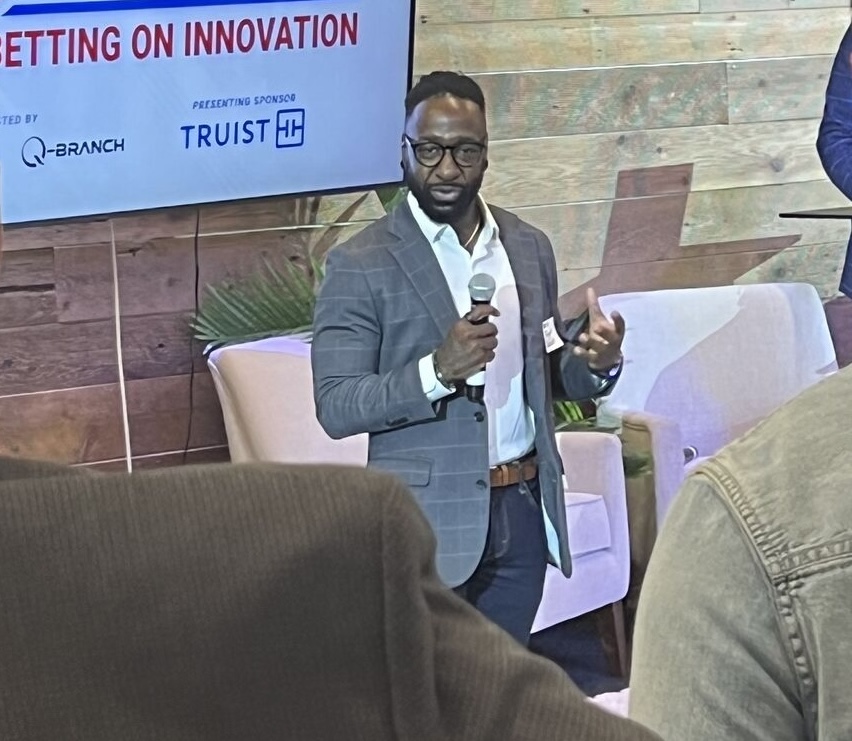Most people spend their lives fearing failure, but for Tomas Gorny, it has been a blessing.
The CEO and co-founder of Nextiva arrived in the United States and achieved the American Dream, only to lose it all. What followed was a journey to earn it all back, shaping the resilient leader he is today.
His is a classic rags-to-riches story, forged from a humble upbringing in communist Poland. It is a journey that reflects perseverance, innovation, and a relentless passion for solving business challenges through technology.
This path has humbled him at every turn, firmly instilling a profound appreciation for hard work and adaptability—the foundational traits of any immigrant chasing a better life. Today, that journey fuels both his cloud platform's success and his genuinely empathetic approach to business.
Yet, for all he has achieved, his focus remains squarely on the future. As he told Business Insider, "I do believe I have an interesting story. But I feel I haven’t done anything yet compared to what my companies will do in the future."
Childhood
In 1975, Gorny was born in communist Poland to two factory workers. Life was hard as the family’s finances were very constrained. They didn’t have things like a car or telephone, but that never defined him . The hardships faced by his community within the Soviet bloc molded him into a risk-taker throughout his life and career.
Gorny took an early interest in both business and technology. “I’ve always wanted to be an entrepreneur,” he explained in an interview with Thrive Global. “My parents told me I started talking about owning my own business and moving to America when I was just 7 years old.”
One of his first businesses focused on selling CDs, which did not go well. He had more success when he launched Trendsetter, which became moderately successful by the time he was 18 years old.
But his first relocation would be a little closer to home, Germany to be precise. Here, he began to build on his problem-solving skills, which happened to align perfectly with the era of the PC revolution.
Gorny was especially interested in the user experience while watching the real-time transformation of tech accessibility, specifically the evolution of MS-DOS (Microsoft Disk Operating System) to the graphical interface of Windows 95.
It was then that he knew he had found his calling, setting him on the path to his dominance in Silicon Valley.
Boom and Bust
As dreams of entrepreneurial endeavors began to dance in his head, he became more and more determined to cross the Atlantic – ready to drop everything at the first chance.
While attending college in Germany, after he had already started a couple business ventures, his prowess caught the attention of a friend living in Los Angeles, who offered Gorny a position with his website-hosting platform, Internet Communications
While there were no guarantees of success and he could only be paid in sweat equity, none of that mattered. He had found his ticket to America.
So, in 1996, two months before graduation, he dropped out of university, collected his life savings – about $15,000 – and bought a one-way ticket to fulfill his destiny.
But life was not as easy as he might have dreamed. The 20-year-old barely spoke English and quickly ran out of resources. Between housing, legal fees for a work visa, and a car that broke down within months, the money disappeared “super quickly,” Gorny told CNBC Make It.
Gorny ended up in a rough part of Hollywood where he lived paycheck-to-paycheck. He spent nights and weekends working random jobs, from parking cars to cleaning carpets to serving banquets.
“I was living off McDonald’s,” Gorny went on to tell Make It. “Once a week, I remember, my friend and I, we went to Sizzler [and] got all-you-can-eat for $7.99 ... I always over-ate, because it was this one time a week I got to really enjoy [my meal].”
Somehow, he survived two years living off about $3 a day, before Internet Communications went public in 1999, earning him his first million – and then some.
Expensive Lesson
After so much hardship, Gorny was ready to buy his dream, including a $40,000 car and a mortgage payment. He then reinvested everything else into a new internet advertising startup.
Like many entrepreneurs at the time, Gorny leaped headfirst into an investment binge, eager to pad his fast-growing net worth. And like many others, the decision would come back to haunt him.
It’s only in hindsight he understands how risky that move was in late '90s tech. Reflecting back, he points to one thing as his major downfall.
“I began setting my goals around my net worth, and made investments in various companies to grow it,” Gorny told USA Today, which collided with the dot-com crash and the 9/11 attacks. Suddenly, all but $6,000 of that wealth evaporated.
“It was quite a learning experience to lose almost everything. When I say ‘almost everything,’ I’m not exaggerating; this was close-to-the-wire living,” he revealed to Forbes. “Coming out of the experience, I turned to building technology companies, self-funding them this time around — relying on strong financial discipline.”
These investments completely reshaped his philosophical outlook.
“I feel this ultimately got me to where I am today, and is propelling the growth of Nextiva as we move forward here as well.”
New Approach
Through his failures, he learned how to weather crises – and how to set his priorities. Unlike his last go-round with wealth, Gorny decided to bet on himself, using his newfound riches to bootstrap multiple new, successful ventures.
“Failure’s like free tuition. You can reflect and analyze so as not to repeat mistakes,” Gorny went on to tell Thrive Global in the same interview. “It’s much harder to break down successes to learn how to improve..”
He abandoned the focus on net worth, instead, choosing to measure success on the value his work provides. He also internalized the idea that the only way to succeed in business is to go all-in.
His new plan was to prioritize building consistent and sustainable profitability over explosive revenue growth or large acquisitions.
Gorny sold his devalued stock and put the thousands of dollars toward buying two internet servers for a new venture, IPOWER, which built software tools for personal websites. This grew it into one of the world’s largest web hosting companies, eventually selling IPOWER to Endurance International for a reported $100 million.
By the time Gorny launched Nextiva in 2006, he was a master at his craft — giving way to the growth of the company that made him a billionaire.
But for Gorny, the future is less about the tech that we build, and more about the connections it makes.
“Although we’re a tech company, we’re very much a human company, investing in human beings to drive customer experience directly,” he concluded his interview with Inc. “So, if I were to leave you with one thought about the future, it’s this: Customer experience automation is not about Man vs. Machine, it’s Man and Machine, working in harmony.”





